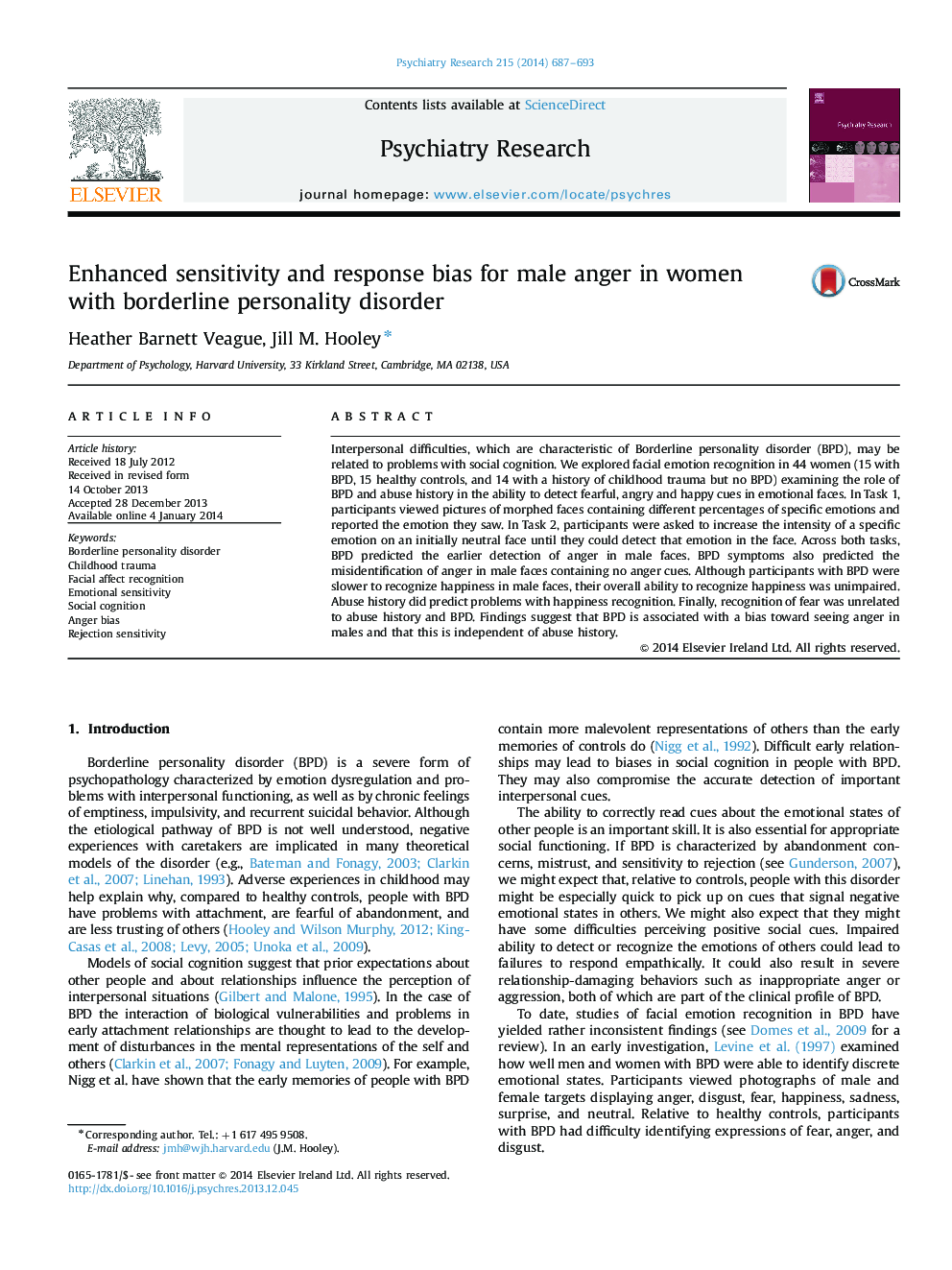| Article ID | Journal | Published Year | Pages | File Type |
|---|---|---|---|---|
| 10303903 | Psychiatry Research | 2014 | 7 Pages |
Abstract
Interpersonal difficulties, which are characteristic of Borderline personality disorder (BPD), may be related to problems with social cognition. We explored facial emotion recognition in 44 women (15 with BPD, 15 healthy controls, and 14 with a history of childhood trauma but no BPD) examining the role of BPD and abuse history in the ability to detect fearful, angry and happy cues in emotional faces. In Task 1, participants viewed pictures of morphed faces containing different percentages of specific emotions and reported the emotion they saw. In Task 2, participants were asked to increase the intensity of a specific emotion on an initially neutral face until they could detect that emotion in the face. Across both tasks, BPD predicted the earlier detection of anger in male faces. BPD symptoms also predicted the misidentification of anger in male faces containing no anger cues. Although participants with BPD were slower to recognize happiness in male faces, their overall ability to recognize happiness was unimpaired. Abuse history did predict problems with happiness recognition. Finally, recognition of fear was unrelated to abuse history and BPD. Findings suggest that BPD is associated with a bias toward seeing anger in males and that this is independent of abuse history.
Keywords
Related Topics
Life Sciences
Neuroscience
Biological Psychiatry
Authors
Heather Barnett Veague, Jill M. Hooley,
